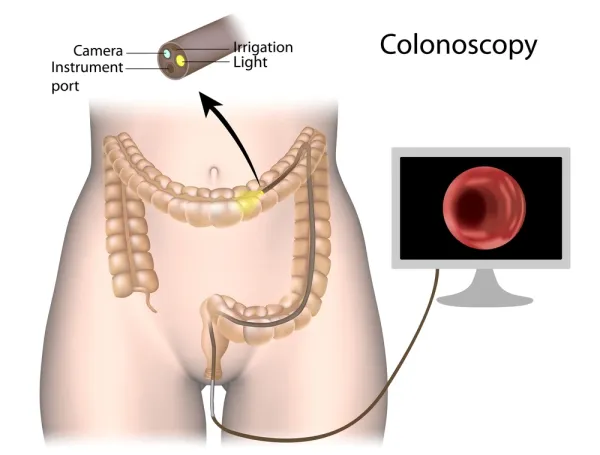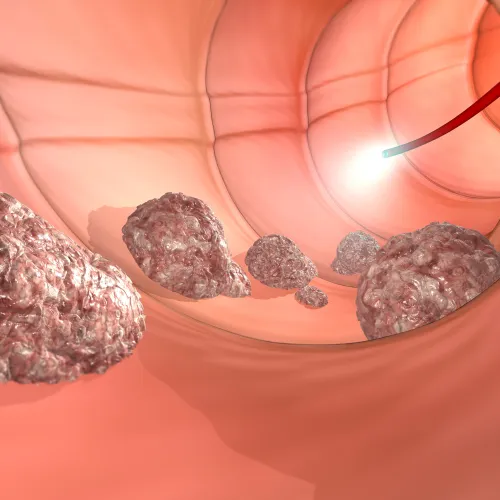Correctly Code Your Screening Colonoscopies

Take note: The screening might eventually convert to therapeutic or diagnostic.
Keeping the differences straight between diagnostic, high-risk screening and non-high-risk screening colonoscopies can be extremely challenging for the coders. But if you start with the correct code set and pay close attention to details, you’ll find success.’
Be Confident When Choosing CPT® or HCPCS
Coders are trained to “think CPT®” from the start, but sometimes you may have to use the HCPCS code instead. For example, an elderly Medicare patient requests a screening colonoscopy. Her last colonoscopy was done 13 years ago, and was normal. She has no history of polyps or colorectal cancer; neither does her family. The patient is eligible for a screening colonoscopy, which you should report with G0121 (Colorectal cancer screening; colonoscopy on individual not meeting criteria for high risk). In this scenario, HCPCS is the correct coding source rather than CPT® because the patient is Medicare and because she is not identified as high risk.
Medicare beneficiaries without high risk factors are eligible for screening colonoscopy every ten years. Beneficiaries at high risk for developing colorectal cancer are eligible once every 24 months. Use HCPCS G0105 (Colorectal cancer screening; colonoscopy on individual at high risk) and the appropriate diagnosis code that supports more frequent screening of a Medicare beneficiary at high risk for colorectal cancer.
The Intent Might Make a Difference
Medicare defines an E/M prior to a screening colonoscopy as routine, and thus non-covered. Nonetheless, when the intent of the visit is a diagnostic colonoscopy, an E/M prior to the procedure ordered for a finding, sign, or symptom is a covered service.
Note: Third-party payers that do not follow Medicare guidelines may reimburse a surgeon for an E/M service prior to a screening colonoscopy. However, these visits are typically documented in a way that the level of E/M service is low. A new patient or consult reported as a level three or higher requires four elements of the history of the present illness (HPI). These elements are location, quality, severity, duration, timing, context, modifying factors, and associated signs and symptoms.
When screening becomes diagnostic: It is not uncommon to remove one or more polyps at the time of a screening colonoscopy. Because the procedure was initiated as a screening, the screening diagnosis is primary and the polyp(s) is secondary. Additionally, the surgeon does not report the screening colonoscopy code, but reports the appropriate code for the diagnostic or therapeutic procedure performed from CPT® codes 45379-45393 (Colonoscopy, flexible …).
Snapshot scenario: The physician begins a screening colonoscopy for an average-risk Medicare patient. She then finds a polyp, which she biopsies. In this scenario, you should choose 45380 (Colonoscopy, flexible; with biopsy, single or multiple), without any modifiers, rather than G0121.
Also: CMS developed the PT modifier (Colorectal cancer screening test, converted to diagnostic test or other procedure) to indicate that a colonoscopy that was scheduled as a screening was converted to a diagnostic or therapeutic procedure. Append PT to the procedure code.
Don’t Go Wrong With the ICD-10 Codes
For an average risk Medicare patient, you should assign a diagnosis of Z12.11 (Encounter for screening for malignant neoplasm of colon) for a screening colonoscopy (G0121). For a high-risk patient (G0105), you could assign a high-risk diagnosis. Some diagnoses that Medicare considers high-risk factors for colorectal cancer, and therefore justify screening colonoscopies, include:
Problem: Assigning a diagnosis for a screening colonoscopy that becomes diagnostic, however, is more difficult. CMS has not provided clear guidance on this point, and Medicare carriers differ in their opinions. Check your payers’ policies to stay up-to-date on their supporting diagnoses.




